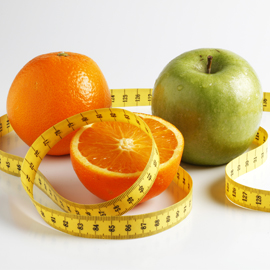
Following lap band surgery, you will have to approach eating in a new way. Since the stomach will be limited to the amount of food it can comfortably handle, learning how to eat smaller portion sizes will be a key to your recovery and long-term weight maintenance.
After an initial 1-2 day period of liquids and a 2 to 3-week period of eating pureed or soft foods, you’ll be able to slowly introduce solid foods back into your diet. Since you will become full so quickly, it’s important to eat the right foods in the proper amounts after surgery to get a balance of nutrients and avoid discomfort.
While sipping water throughout the day to stay hydrated will be important, having drinks with meals is to be avoided. Typically, you may only drink a half hour before or a half hour after a meal, never during.
While your weight loss surgeon will have specific dietary and caloric instructions for you, eating smaller meals will be a necessity to enjoy food comfortably after weight loss surgery.
Making the Most of Your New Diet With Smaller Portion Sizes
Eating food slowly and chewing it thoroughly will become part of your new way of eating. At first, this may feel strange. However, taking time to eat and savor the flavors of your foods will help you make the most of your dining experience and help you to really enjoy your food.
Along with mindfully enjoying each bite of food, try the following:
- Use smaller plates and utensils: Along with helping you better control portion sizes, different studies suggest your mind will feel more satisfied when you see your small portion “fill” the smaller sized eating utensils.
- Eat smaller amounts more often: You may be asked to have three smaller meals a day with protein snacks in between to help you avoid eating too much in one sitting. Always follow your bariatric surgeon’s specific guidelines.
- Stop at the first sign of FULL: To make eating enjoyable, stop the moment you feel full. Overeating will cause discomfort, pain and may cause you to vomit.
Creating a meal plan may help you get the nutrients you need after weight loss surgery. Read food labels carefully to find out if the nutritional content is appropriate for your daily intake needs. You may still need to take nutritional supplements to avoid deficiencies.
Remember that your weight loss surgery is a tool to help you on your journey to wellness. Developing lifelong healthy behaviors, including eating nutritious foods, exercising regularly and managing your stress levels will help you make the most of your surgery on your way to improved health.


